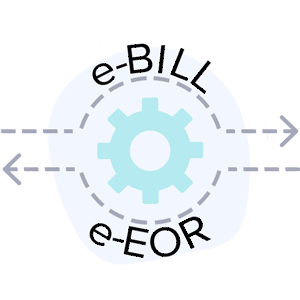ESIS + Conduent + StrataCare = Provider Torment

Preferred Provider Organizations (PPOs) profit from reducing the reimbursements providers receive for treating injured workers. Yet, we would argue that providers (and injured workers) receive nothing from the PPO in exchange. All too often, the only thing providers get from these dubious arrangements is grief.
Case in point: ESIS, Conduent, and Stratacare systematically harassed a physician's office in an attempt to extract $20.60 from the beleaguered provider. These entities claim the provider owes this money because ESIS failed to pilfer its pound of flesh (i.e. the PPO reduction) when ESIS initially processed the original bill.
We’ve seen this type of intimidating behavior from Conduent before, most notably concerning collecting overpayments. This despite the fact that by California law, a provider has no obligation to refund overpayments.
Unrelenting and Alarming Refund Persecution
On 12/17/2019, ESIS reimbursed a provider $137.35 for services rendered to an injured worker. The reimbursement represented 100% of the payment due to the provider per the California Official Medical Fee Schedule (OMFS), and not a cent more.
What followed was a campaign of harassment more akin to telemarketing scams than the business of healthcare. Seven months after reimbursement, the payment persecution commenced. ESIS and Conduent repeatedly contacted the provider, demanding the provider remit $20.60. Why? Because ESIS failed to reduce the provider’s reimbursement per an alleged PPO arrangement.
ESIS/Conduent/StrataCare continually hassled the provider, insisting they were owed 15% of the reimbursement back based on an undocumented — and undeserved — PPO discount arrangement.
Below is a summary of the sustained badgering endured by this provider. Notice that the documentation supporting this demand does not list a PPO name that would allow ESIS/Conduent/StrataCare to take 15% of the provider’s reimbursement. Without a valid contractual arrangement, this isn’t enforcement of an agreement. It’s simple theft, aggravated by a campaign of harassment.
Date |
Harassment |
Details of Aggravation |
7/13/2020 |
Call #1 & Email #1 |
Provider representative reports to DaisyBill that ESIS contacted the provider demanding the provider refund ESIS $20.60 because ESIS failed to purloin a PPO reduction. |
11/3/2020 |
Call #2 & Fax #1 |
Provider representative reports that Conduent called the provider on behalf of ESIS demanding the provider pay $20.60. Per the provider representative: “I keep getting calls on this; you told me we don't have to pay it, what am I supposed to do?" |
12/10/2020 |
Fax #2 |
Conduent faxes a demand letter to the provider. The provider representative contacts DaisyBill: "That email a couple months ago I sent about overpayment, they sent us this letter stating that we do in fact have to pay them back. Please see attached.” |
2/8/2021 |
Fax #3 |
Conduent sends the provider another letter demanding the provider pay ESIS $20.60 because ESIS forgot to reduce the provider’s payment. |
3/30/2021 |
Email #2 |
Conduent representative emails provider: “I am following up with you regarding the status of the refund due to ESIS...We have been requesting the refund since May 2020 and it is past due. Please let me know when the refund will be issued.” |
4/2/2021 |
Email #3 |
Conduent representative emails provider’s agent: “X is contracted with Procura and has therefore agreed to the reimbursement rate within the contract. Procura overpaid the claim based on this contract rate. Why does your office feel that you’re entitled to keep the overpaid amount when the parties involved agreed on the rate to be paid for the services? If your office disagrees with the contact rate, that is something that your office needs to address with Procura when renewing or to make changes to the contact for future claims. The refund of $20.60 is still due.” |
4/6/2021 |
Email #4 |
Conduent representative emails provider’s agent: “X has signed a contract with the work comp carrier ESIS, therefore agreed to the reimbursement rate within their contract. Initially ESIS processed this claim incorrectly and paid the claim at 100% of charges. The signed agreement between X and ESIS indicates a 15% PPO reduction should have been considered when the claim was processed, therefore the refund is due. Why does Daisy Bill feel that X’s office is entitled to keep the overpaid amount when the parties involved agreed on the rate to be paid for the services? Our office has provided written EOR statement showing the PPO reduction. If you feel X disagrees on this PPO reduction rate then this is something that X needs to address with the work comp carrier when renewing or making changes to their contract for future claims. The refund of $20.60 is due. Please provide the refund check information to avoid further escalations.”
|
Outrageously, in the redacted letter below, Conduent had the temerity to claim “Unjust Enrichment” by the provider. Yet without specifying the agreement, in contravention of the rules regarding overpayments, this unscrupulous trio attempted to enrich themselves by bullying a physician.
This is the net result of PPO reductions: wasted time and resources for all concerned.
Conduent, et al are waging a campaign of annoyance in pursuit of $20 they forgot to pilfer, based on a contract they refuse even to substantiate. The entire ordeal exemplifies what’s wrong with workers’ comp, and why so many providers choose to avoid it.
All states should consider banning these PPO reductions from their workers’ compensation systems. In practice, the primary function of PPOs is to profit by draining resources from the providers who treat injured workers. Rather than improving outcomes, PPOs function as leeches, feeding off providers’ work and exploiting the desire of payers to reduce their costs — all without adding any value whatsoever.
Join the fight for better billing! See how your practice can benefit from our workers’ comp expertise and advocacy. Schedule a call to see what DaisyBill can do for you.
Schedule a Call
DaisyBill provides content as an insightful service to its readers and clients. It does not offer legal advice and cannot guarantee the accuracy or suitability of its content for a particular purpose.



